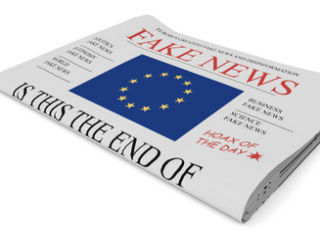
How to believe or not to the information Europeans are reading or acquiring via several sources, especially in times when outside actors seem to deliberately play a role in the opinion-making process on social media? How to filter the information flow, which by definition is disorderly to the extreme of human brain capacity? How to defend harmless citizens from twisted hints in a time where only a few specialists can really read complex and highly technical issues in and out?
While the Institutions and Member States equip themselves with new rules and monitoring bodies, while big enterprise like Facebook and Google pioneer for the first time counteractions in this direction, while EU citizens struggle to steer their own participation to public debates... here comes #EUevents contribution with this stock-taking on past and future events dedicated to this subject at European level.
15 January - EU HIGH LEVEL GROUP ON FAKE NEWS: FIRST MEETING
23 January - Fact-Checking Science: shaping the governance of scientific advice in the EU
26 January - Propaganda and Fake News - Lessons from the Past
30 January - Tackling Fake News About the EU
5 February - Let’s Tweet Again! Fake news & social media - Panel Debate
12 February - People want unbiased news: Do they think the media deliver?
26 February - Digital Forum: Fact or Fake? Tools & Practices to Fight Disinformation
14 March - From Disinformation to Cognitive Hacking: The Evolution of Russian Influence Operations
28 March - Trust Summit 2018
11 April - Disinformation - the playbook and how to fight it: 2018 Brussels DisinfoLab
27 April - Workshop: Facing up to fake news
6 June - Fighting online fakes
28 June - Countering online disinformation in Europe: Next steps
18 October - Hearing on "Free and Independent Journalism in today's world"
NEW 21 November - Digital Diplomacy in the Age of Disinformation
NEW 22 November - Fighting Illegal Online Content
NEW 27 November - Factfulness: Ten reasons we're wrong about the world
Last update 09/11/2018